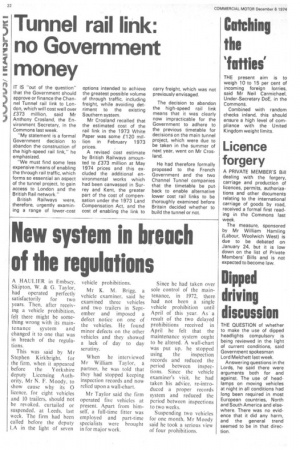Tunnel rail link: no Government money
Page 24

If you've noticed an error in this article please click here to report it so we can fix it.
IT IS "out of the question" that the Government should approve or finance the Channel Tunnel rail link to London, which will cost well over £373 million, said Mr Anthony Crosland, the Environment Secretary, in the Commons last week.
"My statement is a formal Government decision to abandon the construction of the high-speed rail link," he emphasized.
"We must find some less expensive means of enabling the through rail traffic, which forms so essential an aspect of the tunnel project, to gain access to London and the British Rail network."
British Railways were, therefore, urgently examining a range of lower-cost options intended to achieve the greatest possible volume of through traffic, including freight, while avoiding detriment to the existing Southern system.
Mr Crosland recalled that the estimated cost of the rail link in the 1973 White Paper was some £120 million in February 1973 prices.
A revised cost estimate by British Railways amounted to £373 million at May 1974 prices and this excluded the additional environmental works which had been canvassed in Surrey and Kent, the greater part of the cost of compensation under the 1973 Land Compensation Act, and the cost of enabling the link to carry freight, which was not previously envisaged.
The decision to abandon the high-speed rail link means that it was clearly now impracticable for the Government to adhere to the previous timetable for decisions on the main tunnel project, which were due to be taken in the summer of next year, went on Mr Crosland.
He had therefore formally proposed to the French Government and the two Channel Tunnel companies that the timetable be put. back to enable alternative lower cost rail links to be thoroughly examined before Britain decided whether to build the tunnel or not,












































































































































